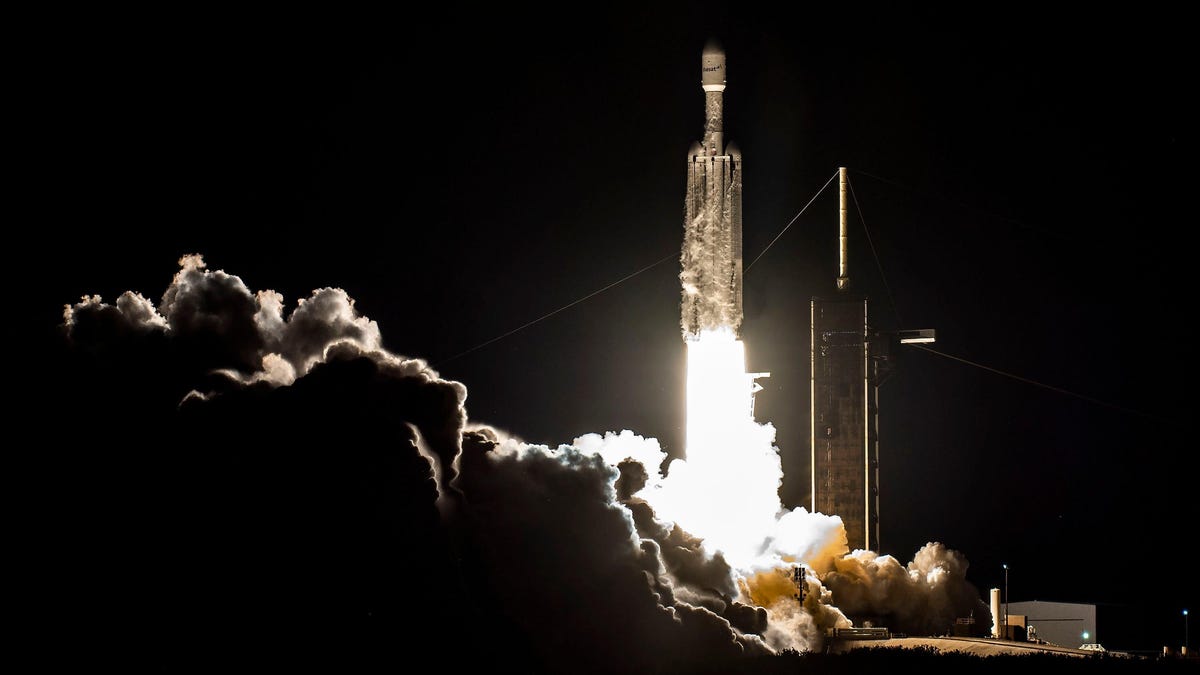
The private space industry has set up shop at Florida’s Cape Canaveral and the state is looking out for its billionaire space entrepreneurs. The Florida House passed a bill that would protect commercial space ventures against legal liability in the event of a crew member’s injury or death.
On Friday, the senate unanimously voted in favor of a bill that would grant protection to companies like SpaceX and Blue Origin against civil lawsuits concerning the wellbeing of their crews, Florida Politics reported. The Spaceflight Entity Liability bill would exempt space companies “from liability for injury to or death of a crew resulting from spaceflight activities under certain circumstances; requiring a spaceflight entity to have a crew sign a specified warning statement,” the bill reads.
Advertisement
The space industry is moving beyond government-trained astronauts to include a select group of civilians hopping on board privately-owned rockets. “The fear is that the estate of ultra-wealthy passengers could bring massive claims for hundreds of millions of dollars in lost revenue due to the life of the passenger being cut short,” Mark Sundahl, director of the Global Space Law Center at Cleveland State University, told Gizmodo in an email. “The industry is still in its early days and such liability might stunt the industry.”
The bill is only effective if crew members signed a waiver prior to engaging in spaceflight activities, thereby alleviating the responsibility of crew safety from the companies. As a result, the bill “has the potential to limit the cost of litigation to businesses engaging in spaceflight activities,” according to the bill analysis. As Sundahl points out, however, there is a “long history of such waivers for a variety of inherently dangerous activities, but courts have not always enforced them.” Therefore, even with the waivers, it could still be up to the individual courts in the event of a lawsuit.
Advertisement
“The idea behind the waiver is that thinking adults can decide whether or not to accept the risk,” Sundahl said. “But this assumes that there is ‘informed consent.’ It is questionable whether a passenger who is not familiar with the technology and history of spaceflight can truly be ‘informed’ as to the risks.”
Advertisement
The bill does not protect companies that have committed “gross negligence,” if a company knew about dangerous conditions beforehand or if the company intentionally tried to harm the crew member in question. It is rather aimed at “inherent risks” of the spaceflight activity at hand, and if the company acts with “simple negligence,” according to the bill. That simple negligence, however, does put crew members’ lives at risk. So far, the small batch of private astronauts who have ventured on suborbital or orbital flights have not been harmed as a result of their trip. But spaceflight is inherently dangerous and even space tourists should know the risk they’re taking by embarking on these high-altitude journeys.
“Do we want to immunize companies from harm flowing from negligent behavior? Will this embolden those who do not prioritize safety?” Sundahl said. “Or is this a reasonable protection for an industry that is just getting on its feet” and at a time when “the standards of operation are so vague.”
Advertisement
For more spaceflight in your life, follow us on Twitter and bookmark Gizmodo’s dedicated Spaceflight page.
Services Marketplace – Listings, Bookings & Reviews